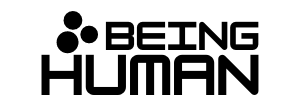Why Most Facilitation Training Misses the Mark (and What We're Doing Differently)
I've watched countless professionals leave facilitation workshops with binders full of templates and heads full of techniques, only to freeze up the moment they encounter a real group dynamic they weren't prepared for.
The problem isn't that they lack tools. It's that most facilitation training treats symptoms instead of addressing the core challenge: the facilitator themselves.
Traditional facilitation training focuses on what to do, icebreakers, decision-making frameworks, conflict resolution steps. But here's what I've learned from working with hundreds of facilitators: technique without identity is just performance.
When someone in your workshop gets defensive, when energy drops, when diverse perspectives clash, that's not a moment for your next activity. That's a moment that requires you to show up as a centred, confident space-holder who can navigate uncertainty with grace.
Most training programs skip right over this foundational work.
The "Superhuman" Myth
One recent participant told me: "I used to think facilitators were superhumans. Through this program, I realised I am one."
This shift from seeing facilitation as an impossible standard to recognising it as an expression of skills you already possess is everything. Yet most training programs inadvertently reinforce the superhuman myth by presenting facilitation as a mysterious art rather than learnable capabilities built on your existing strengths.
What We're Doing Differently
We start with identity, not technique. Before we teach you how to ask powerful questions, we help you recognise that your natural curiosity is already a facilitation superpower. Before we show you conflict resolution frameworks, we help you understand that your ability to create psychological safety is what actually resolves tension.
We embrace your existing context. Instead of generic case studies, participants work on real challenges from their own professional lives. The L&D manager practices with actual team dynamics. The creative producer applies skills to their next collaboration. The social impact leader addresses stakeholder tensions they're actually facing.
We normalise the learning edge. One participant shared: "Simple things are the hardest sometimes." We create space for this truth instead of pretending facilitation should feel easy from day one. Growth happens in the stretch, and we design for that discomfort rather than avoiding it.
We focus on inquiry over instruction. As another graduate discovered, "I used to think I had to prove or drive a point home. Now I realise people need to come to realisations themselves. So I'll just ask the right questions." This shift from telling to asking is fundamental and it's modelled in how we facilitate the learning itself.
The most powerful feedback we receive isn't about techniques learned. It's about identity claimed:
"I used to think I wasn't a good facilitator. Through this program I realised I am. So now I will step into more spaces with ease."
"I used to think I didn't know what I could offer as a facilitator. Now I will create and share a workshop service offering."
When facilitation becomes an expression of who you already are rather than something you're trying to become, everything changes. Your presence shifts. Your confidence grows. Your impact multiplies.
Beyond the Binder
Don't get me wrong tools matter. But they matter most when they're wielded by someone who knows their own facilitation identity, trusts their ability to hold space, and understands that great facilitation is ultimately about service, not performance.
The question isn't whether you have the right icebreaker for your next meeting. The question is: do you know how to show up as the kind of person who creates the conditions for breakthrough moments to emerge?
That's learnable. That's developable. And that's where real facilitation mastery begins.

